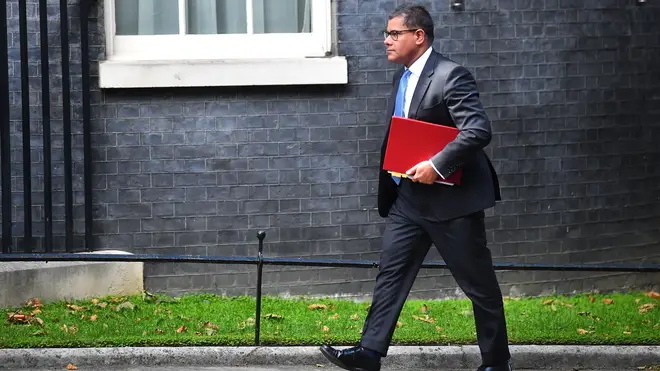
Henry Riley 3pm - 6pm
30 September 2020, 13:24

The risk of fraud in the bounce back loan scheme was ‘very high’, Business Secretary Alok Sharma was told.
The government bank tasked with overseeing bounce back loans warned ministers as early as May that they were open to fraud and could be used by organised crime.
The British Business Bank warned that auditors had found the risk of fraud in the multibillion-pound Bounce Back Loan scheme was “very high”.
The loan scheme has so far funnelled more than £38 billion to UK companies, with loans of up to £50,000 provided by normal high street lenders, but guaranteed by the Government.
In a letter to Business Secretary Alok Sharma, British Business Bank boss Keith Morgan, who has since retired from the role, said his board was worried about the “propriety, value for money and feasibility” of the loan scheme.
“The scheme is vulnerable to abuse by individuals and by participants in organised crime,” he wrote in a letter dated May 2, which was published on Wednesday.
Mr Morgan added: “Alongside the fraud risk, there will be considerable credit risk in the current economic environment, which will be exacerbated by removing significant elements of the credit checks that would otherwise have been undertaken.”
He also warned that in the record time that lenders were forced to establish the loan schemes they were unable to set up a system to avoid one company applying for loans through several businesses.
In a statement, the Government said: “We’ve looked to minimise fraud – with lenders implementing a range of protections including anti-money laundering and customer checks, as well as transaction monitoring controls. Any fraudulent applications can be criminally prosecuted, for which penalties include imprisonment or a fine, or both.”
On May 15 the PA news agency asked the British Business Bank how it was ensuring that one company would not receive bounce back loans from more than one lender.
Two weeks later the British Business Bank told PA: “Amongst other measures, there is in place a cross-lender initiative managed through Fraud Bureau services which enables lenders to check if duplicate applications have been made for a BBLS loan with other lenders.”
In his letter to the Business Secretary, Mr Morgan also warned that low 2.5% interest rates on bounce back loans could favour the larger banks, and reinforce their dominance over the market.
If smaller lenders fail it could impact the ability of the market to support an economic recovery in the medium to long term.
The Government was forced to push out unprecedented schemes in record time when lockdown started, and ironed out some issues in the following weeks and months.
In a separate letter weeks later, Mr Morgan also raised concerns about the Future Fund, set up to help start-up companies. It has so far invested £720 million.
He warned that the money could end up going to second-rate companies as private investors funded the cream of the crop.
The bank also warned that without a mandate to invest in later fundraising, the Government’s stakes in the businesses risk being diluted, while the Future Fund also risks benefitting London and the South East over other areas of the country.
Despite its concerns, the British Business Bank was told to go ahead with the programmes, which have proven to be vital lifelines for hundreds of thousands of businesses across the country.
Mr Morgan recognised that more was at stake than the bank was tasked to evaluate: “As I have communicated previously, however, we do also fully understand the considerable difficulty in assessing risk in these unusual times and also that ministerial objectives and considerations may in these circumstances be broader than ours.”